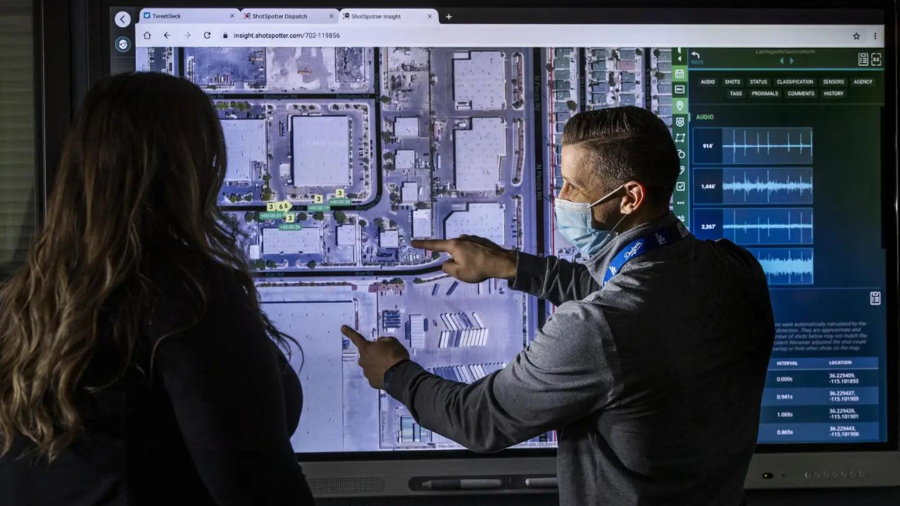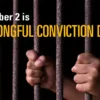
The Seattle City Council has greenlit funding for a controversial gunshot locator system as part of a larger crime prevention pilot project.
Seattle Mayor Bruce Harrell’s 2024 budget proposal asked the council to consider using approximately $1.5 million on acoustic gunshot detection, video surveillance and automatic license plate readers, using unspent Seattle Police Department (SPD) salaries. Mayor Harrell stated it is necessary to reduce the city’s violent crime rate amid an ongoing officer shortage.
SoundThinking, formerly known as ShotSpotter, is the company that provides the technology in question, which is still called ShotSpotter.
One version of the detection system uses acoustic sensors to record the sound of gunfire and triangulate the origin.
The company is run out of California, but Ralph Clark, who The Seattle Times recently called “a Seattle resident with a history of courting the city to embrace his service,” has been the firm’s president and CEO since 2010.
More on SoundThinking: Tech nipped from Seattle budget despite mayor’s push
According to SoundThinking, “ShotSpotter is used in more than 150 cities and is highly regarded by law enforcement as a critical component of gun violence prevention and reduction strategies.”
But its effectiveness in crime prevention has been questioned in several independent studies, provoking questions from some Seattle City Council members.
“This technology simply doesn’t work, Seattle City Council member Lisa Herbold said in a statement Monday. “In fact, the research shows that it hurts police response times by repeatedly sending officers to mistaken alerts, pulling them away from doing work elsewhere.”
She voiced concerns about the technology’s effect on police response times and its potential to distract officers from other duties.
“We absolutely need to do more to address gun violence, but this is just throwing money away. It’s money that we should be using to bring people experiencing homelessness, people who are disproportionately impacted by violence, into shelter and safety,” Herbold continued.
The mayor believes the pilot project is an innovative tool to help combat gun violence, a sentiment echoed by some local residents.
Victoria Beach, chair of the African American Advisory Council to the Seattle Police Department, said at a public hearing Monday night that she supports anything that will help protect her community in South Seattle.
“The people that think they speak for us, they haven’t sat with the weeping parents,” she said. “I’ve been to the funerals. I’m tired of it. We need help.”
Some want the money used in other ways
However, many others at the hearing urged the council to put the money elsewhere.
“You don’t create public safety by paying people sitting hundreds of miles away in a room to listen to recordings of loud sounds, because that’s what ShotSpotter ultimately is,” BJ Last, a resident of Seattle’s Ballard neighborhood, said during a public comment forum with the city council. “People listening to noise and saying whether or not it is a gunshot, and this is a system that is wildly inaccurate.”
If approved in the final budget, the mayor’s office said the locations where the technology is deployed will be prioritized based on crime data, which would likely include areas like Third Avenue, Aurora Avenue North and parts of Belltown, according to the most recent SPD crime dashboard data.
More on the Seattle City Council: It’s Bob Kettle in District 7, Joy Hollingsworth in District 3
The mayor has long been a supporter of this technology, and the city has considered adopting it at least twice: Once back in 2013, when Harrell served on the council, and again last year when he proposed his first budget as mayor. However, this proposal slightly differs from previous versions. Harrell wants to combine the sensors with closed-circuit television surveillance (CCTV) to increase the ability to identify perpetrators.
That idea didn’t convince critics at the hearing.
“ShotSpotter has been subject to extensive peer-reviewed research in cities all across the country, and there is no evidence of the addition of CCTV changes,” Camille Baldwin-Bonney, a volunteer with grassroots group People Power Washington, said during the public comment. “ShotSpotter has an abysmal false positive rate.”
Herbold also pointed to a study that found CCTV paired with ShotSpotter-type technology, as proposed in this budget, “did not significantly affect the number of confirmed shootings, but it did increase the workload of police attending incidents for which no evidence of a shooting was found.”
One study of 68 large U.S. counties found no significant impact on firearm-related homicides or arrests. Additionally, the American Civil Liberties Union of Washington has recommended the council not fund ShotSpotter, arguing it doesn’t prevent crime or violence and could increase police violence and privacy risks.
This follows reports that some cities and police departments have discontinued their use of ShotSpotter, citing concerns about police response times, potential racial bias and civil liberties. San Antonio’s Chief of Police chose to redirect funds towards community engagement. Fall River, Massachusetts, ended its contract with ShotSpotter, citing cost and effectiveness.
Other cities, including Portland, Oregon, and Atlanta have also decided not to renew or initiate contracts with ShotSpotter. The technology was also discontinued in New Orleans; Dayton, Ohio; Charlotte, North Carolina; and Trenton, New Jersey. ShotSpotter has also been implicated in wrongful imprisonment cases, including that of Michael Williams in Chicago.
Seattle City Council ultimately makes moves
During Tuesday afternoon’s meeting, council member Kshama Sawant proposed putting the $1.5 million into behavioral health programs, rather than the technological advancements. The amendment failed in a 5-4 vote, with council members Dan Strauss, Sara Nelson, Debora Juarez, Alex Pedersen and Andrew Lewis voting against it.
The Select Budget Committee ultimately approved funding for the crime prevention pilot project in another 5-4 — but with an added condition: The $1.5 million can only be used for the CCTV and gunshot locator systems, and no other purpose. In previous meetings, several councilmembers have expressed concerns about how SPD’s salary “savings” are being used, as vacant officer positions continue to be funded despite SPD failing to meet hiring goals.
More from Kate Stone: Washington apple growers are celebrating a stellar crop this year
The amendment’s sponsor Teresa Mosqueda also pointed out that under current city law, the council must pass a separate law approving city use of surveillance technology, regardless of what is earmarked in the budget. Additionally, Mosqueda said these conditions would allow time for public input and community engagement on topics such as racial inequities within criminal justice systems. That measure passed with seven votes in favor, and council members Nelson and Pedersen abstaining.
The council canceled their scheduled meeting Tuesday evening, but is expected to vote on the entire city budget before the end of the month.
Follow Kate Stone on X, formerly known as Twitter, or email her here.


